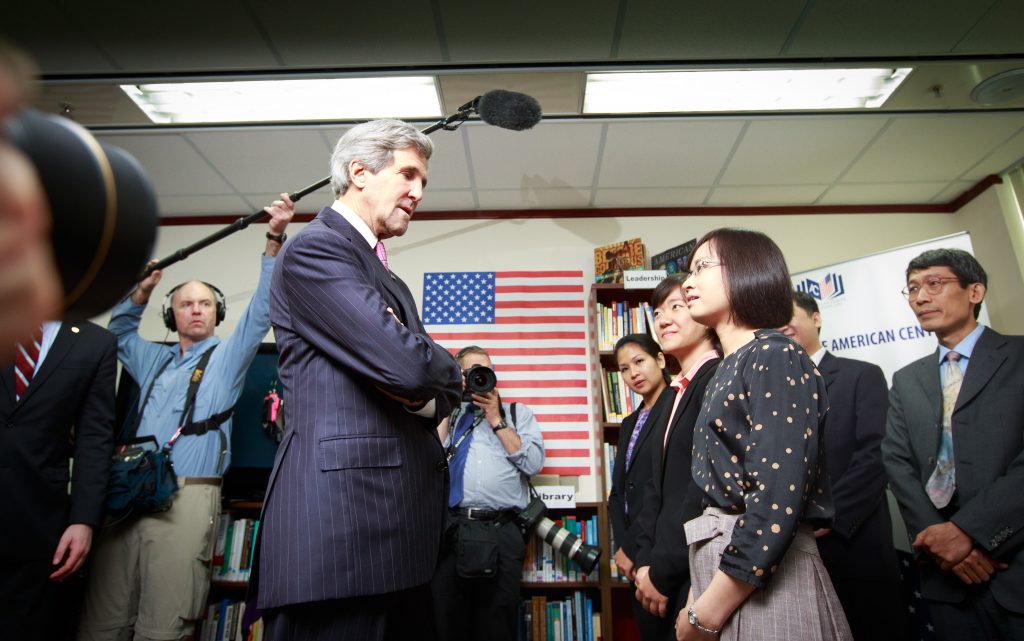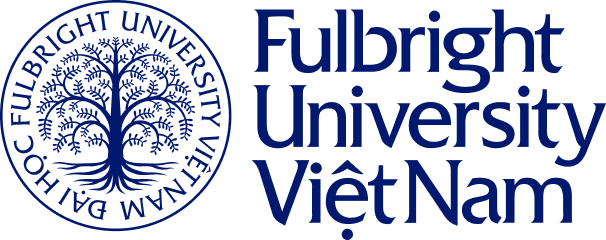
Dang Thi Manh, alumna of Fulbright Economic Training Program (FETP)’s Master in Public Policy (MPP), never expected to hold a managerial position in an American multinational company given her humble background as an English teacher.
Manh took a sharp turn in her career path. From the English teacher of Foreign Trade University (FTU) in Ho Chi Minh City to the current title as Procter & Gambler (P&G)’s Supply Chain Manager for feminine care brands in Southeast Asia, Australia and New Zealand markets, the two-year master in public policy program at FETP propelled her to new horizons.
Founded in 1995, FETP was a partnership between the University of Economics, Ho Chi Minh City and the Harvard Kennedy School, USA. In 2016, FETP was developed into the Fulbright School of Public Policy and Management (FSPPM), the first academic unit at Fulbright University Vietnam.
In 2009, Manh was looking for a master’s program to advance in her career rather than remaining a lecturer for English language majors at FTU, when a colleague recommended she take the MPP program at FETP.
Manh held a bachelor’s degree in English-language Pedagogy and never thought she could learn economics for her graduate program. Meanwhile, FETP offered MPP curricula with either economics or management-related majors. Importantly, FETP was the only economic training program in Vietnam that opened to all applicants regardless of their undergraduate backgrounds. In order to qualify for FETP, Manh completed foundation courses as required by the Ministry of Education and Training for those who did not graduate from Economics or Management majors, before entering the MPP2 class at FETP.
“It was a miraculous turn that led to enormous changes later on, changes I would never have anticipated,” she says.

Ms. Dang Thi Manh represented the FETP student community at the meeting with US Secretary of State John Kerry visiting the school on the occasion of his official visit to Vietnam.
After graduating from FETP in 2011, Manh decided to change jobs. She enrolled at P&G Vietnam with the position of Demand Planner. She worked there for eight years until a promotion in Singapore for her current job. She is now working in Singapore and will come back to Vietnam in several years.
“The grandma language”
Manh encountered the biggest challenges of her life when she studied at FETP because most of the economics-related majors in the program referenced concepts she had never learnt before. But no matter how hard these majors were, FETP’s classes were always filled with excitement. Manh always felt most inspired by Professor Dang Van Thanh, lecturer of Micro Economics, who always started introducing a new economic term by saying: “This term is translated into grandma language as…”
“That’s the way he expressed abstract, hard-to-understand terms with the simplest phrases that all grandmothers could understand, so there was no way we students could not understand, as they were related to real life issues,” Manh recalls.
Since then, the exchange of ideas in academic areas using “grandma language” became a trait of Fulbright culture. Not only Prof. Dang Van Thanh but other professors also managed to rephrase complex terms of economics, finance and management with simple and familiar words accompanied by humorous and vivid examples.
“As we were inspired by our professors, we also tried to summarize our findings and viewpoints in the simplest and clearest way, avoiding tired clichés and fancy words when doing exercises and writing essays. The ‘grandma language’ helped us understand clearly the nature of technical terms so that we could know how to use them correctly and in the proper context when it came to presentation,” Manh says.
Two years at Fulbright school helped Manh form the habit of speaking and writing in a simple style. After graduating from FETP and working for P&G, she realized that it sounded easy but held significant meaning. Simple speaking and writing made communications at work easier and saved a lot of time for all sides.
“With the habit of using “grandma language” at work, I was usually praised as “clear and sincere” by my colleagues,” she claims.
“Servant leadership”
Manh uses the phrase “servant leadership” to describe the attitude towards teaching, learning, and working in the academic environment of Fulbright. She remembers FETP lecturers acted as if they were inferior or equal to students in terms of academic status; they taught and instructed students to explore the beauty of knowledge with genuine humility.
“They were the wittiest yet most humble persons I had ever met. No question was ignored. No concern was forgotten. No idea was not listened to. No criticism was rejected,” she explains.

Ms. Dang Thi Manh continues to uphold the values of Servant Leadership in her career and life
Not only professors but academic affairs officers, assistant lecturers, administration staff and librarians at Fulbright school were the most friendly, hard-working and dedicated persons she had ever known, according to Manh. The spirit of service at its utmost level in this academic environment made students like her feel respected and appreciated.
Immersed in that spirit of service, she also applies the “servant leadership” philosophy in her work to serve clients, customers, as well as to serve herself, her family, her colleagues, and her community.
“The spirit of service has brought a lot of achievements to me, such as the “Servant Leadership” award granted by the corporation. This recognition made me so proud, more than any awards in business I’ve ever won,” she emphasizes.
At FSPPM, even small things like the daily 8:20 a.m. assignment deadline meant something bigger to students. No students were allowed to give excuses for missing that deadline, whether it was illness, traffic congestions or computer breakdowns. No excuses were accepted for missing the deadline. According to Manh, the 8:20 deadline trained students to work under pressure, to take responsibilities and to deliver on commitments.
“I myself bring the commitment spirit into my work and personal life. When I’m at home, once I promise with my children to do something, I will definitely do it, even if my children are still too small to “force” me into doing and punish me if I do not. When I’m at work, for something I can do, I say I can do and I will definitely do it; for something I’m not sure I could do, I say I will try my best to do it but I cannot pledge about the result.”
Manh believes the habit of making and delivering on commitments brings essential trust. To be trusted by her family and colleagues is to make her work smoother and see many problems solved.
The former student praises Fulbright school’s principles, saying one of the most valuable teaching it brings to students is the attitude towards learning: a life-long learning spirit.
According to her, learning is not only about the two years of study required for majors. It does not only take place inside the four walls of the amphitheater or the library. Learning at Fulbright is learning from others. It is home to a diverse community of students with different background, each bringin new perspectives to bear through their own experiences and ideas from which she can learn.
Manh applies this philosophy of celebrating diversity she discovered at Fulbright to her work, finding great success through simply listening and learning from her co-workers and her company’s working environment.
“Day after day, I always find myself learning and updating my knowledge. Many of my colleagues have come to master technology and digital tools as they process and analyze data, while am still struggling with manual filing. I’m very concerned about that and determined to learn from them to improve my performance, to save energy for what cannot be replaced through technology, where the human heart and mind reigns,” she elaborates.
Manh’s company leadership must have seen her desire for learning when they promoted her to more challenging responsibilities in Singapore, where she can develop in her career path.
“For me, success is not about being promoted to a higher position; it’s about how you find yourself improved in terms of knowledge, skills, competencies, how you can help your colleagues and juniors improve, and finally how you can get along with others in work and life. Learning or working must lead to the ultimate goal of getting along with people in your family, in your society and your community. I always believe that learning non-stop is the key to that kind of success,” she concludes.
Thuy Hang








